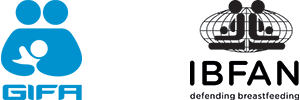
Research has revealed new insight into the biological mechanisms of the long-term positive health effects of breastfeeding.
Breastfeeding is known to be associated with better health outcomes in infancy and throughout adulthood, and previous research has shown that babies receiving breastmilk are less likely to develop asthma, obesity, and autoimmune diseases later in life compared to those who are exclusively formula fed.
However, up until now, the immunological mechanisms responsible for these effects have been very poorly understood. In this new study, researchers have for the first time discovered that a specific type of immune cells — called regulatory T cells — expand in the first three weeks of life in breastfed human babies and are nearly twice as abundant as in formula fed babies. These cells also control the baby’s immune response against maternal cells transferred with breastmilk and help reduce inflammation.
Moreover, the research — supported by the National Institute for Health Research’s Surgical Reconstruction and Microbiology Research Centre (NIHR SRMRC) — showed that specific bacteria, called Veillonella and Gemella, which support the function of regulatory T cells, are more abundant in the gut of breastfed babies.
The results of the study, published in Allergy, emphasise the importance of breastfeeding, say the researchers. Read the article here https://www.sciencedaily.com/releases/2021/01/210114111912.htm
Date: January 14, 2021 Source: University of Birmingham. Photo credit https://breastfeedingcanada.ca/en/
